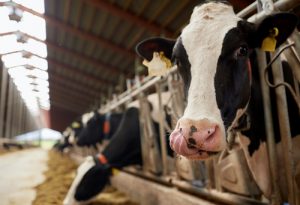
America’s livestock and poultry producers would receive federal relief to tackle the economic impacts of the COVID-19 pandemic under a Republican bill introduced on July 2 by U.S. Sen. Thom Tillis (R-NC).
The senator is among four original cosponsors of the Responding to Epidemic Losses and Investing in the Economic Future (RELIEF) for Producers Act of 2020, S. 4156, including U.S. Sens. Joni Ernst (R-IA) and Richard Burr (R-NC), who joined bill sponsor U.S. Sen. Jim Inhofe (R-OK) in introducing the measure.
“As our nation continues the fight against COVID-19, our pork producers and poultry farmers continue to deal with supply chain disruptions and backlogs,” Sen. Tillis said. “The RELIEF Act will provide much needed additional resources that will allow them to offset losses related to COVID-19 and continue feeding our nation.”
If enacted, S. 4156 would provide support to producers who euthanized their animals due to COVID-19; provide resources for animal health laboratories developing solutions against emerging animal disease spread; and provide future additional authority to the U.S. Department of Agriculture Secretary regarding the removal and disposal of livestock during public health emergencies, according to a bill summary provided by Sen. Tillis’ office.
Due to the pandemic, “producers have suffered substantial losses in revenues and continue to face changing and uncertain demand,” according to the one-page summary. “The livelihood of farmers and ranchers is dependent on their ability to process and sell their livestock. Unfortunately, the COVID-19 pandemic has directly impacted their ability to do so.”
Among several provisions in S. 4156, the value of livestock would be calculated based on the national average market value between March 1 and the date of the bill’s enactment. Reimbursements would be calculated for a 30-day period beginning with the date of initial depopulation, and producers would receive 85 percent of the value of their losses, with the value of losses for each subsequent 30-day period being reduced by 10 percent, according to a one-page summary of the bill.



